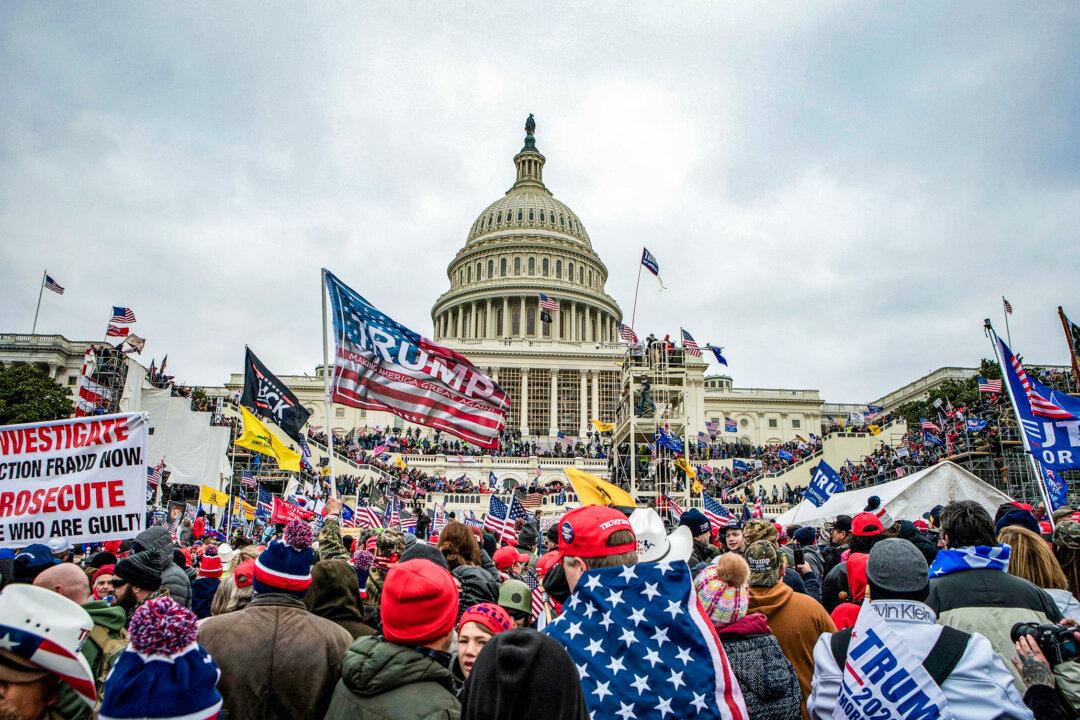The Treasury Department has admitted that it helped law enforcement catch people involved in the Jan. 6 Capitol breach by urging banks to comb through the private transactions of customers using terms like “MAGA” and “Trump” as part of a surveillance scheme intended to fight money launderers but used to hunt Jan. 6-ers.
In January, The Epoch Times reported on allegations that the Financial Crimes Enforcement Network (FinCEN)—the U.S. Treasury Department’s financial crime-fighting unit—was accused of engaging in “pervasive financial surveillance” by circulating materials to banks that listed keywords that could be used to flag private financial transactions of potential Jan. 6 suspects for law enforcement.





